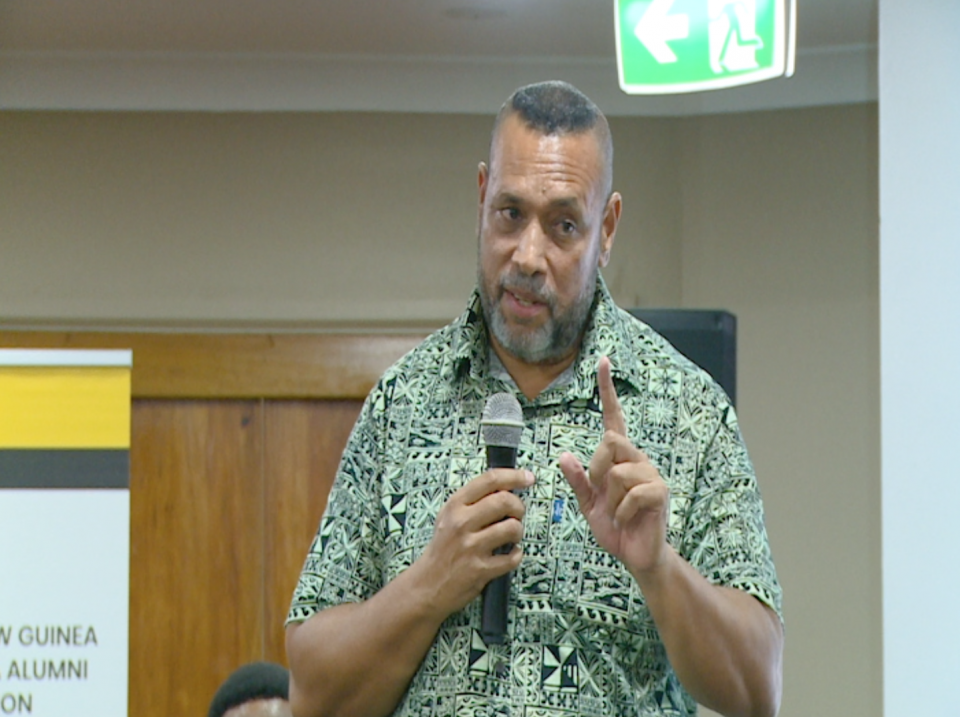Papua New Guinea’s National General Election (NGE) was marred with endless allegations of corruption and abuse such as inflated and bogus electoral rolls, use of extra ballot papers, use of violence to intimidate voters and rival candidates, widespread use of bribery and undue influence with voters and electoral officials alike, hijacking of ballot papers, hijacking of the counting process, with many women voters bullied and intimidated and many more.
The Papua New Guinea Australia Alumni Awards (PNGAAA) in partnership with the Lowy Institute of Australia-PNG Network hosted a PNG Development & Policy Dialogue to discuss lessons learnt on the country’s National General Elections 2022.
In attendance were NGO’s, Transparency International PNG, DFAT and other institutions as part of a larger group to share their thoughts and find a way forward for the electoral process.
This dialogue also suggested propositions for electoral reforms and the way forward, in its first in the series of dialogues, PNGAAA hosted Allan Bird, Governor for East Sepik and Chairman for Special Parliamentary Committee on NGE 2022 as the keynote speaker.
In his address Governor Bird shared his experiences and challenges faced by him and the East Sepik Provincial Government during the NGE 2022.
“From the first day of the election, I was notified that a ballot box was destroyed as some young men did not find their name in the common roll, thank goodness there were no ballot papers in that ballot box.” Governor Bird said.
Other issues like funds to run the election also plagued the East Sepik Province; Governor Bird revealed that the Provincial Government had to borrow money in order to fund the election in the province.
A panel discussion was also held, moderator Jessica Collins of the Lowy Institute probing panelist Central Governor Rufina Peter on the challenges she faced during the NGE 2022.
“One of things I ensured to do was carry out awareness, not only did I speak to the voters, but I also carried out awareness on those that were involved in the election process. On two separate occasions I spoke to the army at Murray Barracks and Taurama Barracks.” Governor Peter said.
Prime Minister and National Executive Council Chief Secretary and the Inter Departmental election Committee Chairman Ivan Pomaleu has signaled that voter education is needed.
Topics of discussion also included women reserve seats in parliament following the win of Central Governor Rufina Peter in the 2022 NGE the Prime Minister James Marape in making reference to Rufina Peter’s election to Governor of Central Province, claimed that “any women can win any election, they do not need special seats in Parliament”. He maintained that women can win on their merits, but acknowledged the flaws with the electoral process in 2022 that made it much more difficult for women to get elected, and promised to improve the electoral process to make elections free and fair.
Marape has yet to comment on the amended OLIPPAC, which was approved by the National Executive Council and tabled in parliament on 3rd January 2020. This legislation includes section 56(4) which states that: “A registered political party shall, from the total number of candidates nominated by the party in a general election, ensure that twenty percent of these candidates are women candidates.”
While 64 women candidates were endorsed by political parties in 2022, many more such candidates are needed. Political party quotas for women candidates are used successfully by many countries around the world and could if implemented, significantly increase the number of women candidates in PNG.
During the panel discussion Governor for East Sepik Allan Bird revealed that he is an advocate for women in parliament when asked on the NEC decision tabled in parliament he referenced that political parties want to win election so they choose candidates on those merits.
“I should not be the only one pushing this agenda; everyone should be pushing for women to be in parliament.” Bird stated.
In its desire to play an active role the PNGAAA as a ‘think tank’ institution provided the platform for its members and likeminded institutions to dialogue in unpacking some of the intricacies, underlining factors and evidences, and more importantly contribute some recommendations to the work of the Special Parliamentary Committee on NGE 2022.


